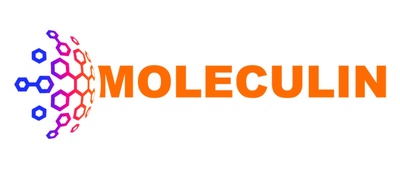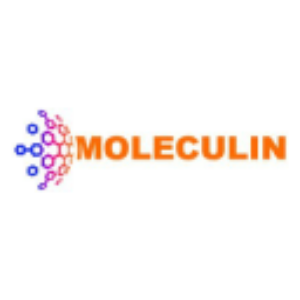Moleculin Announces Positive Interim Results in Pediatric Brain Tumor Phase 1 Clinical Trial at Emory University
Moleculin Biotech, Inc. (Nasdaq: MBRX) announced positive preliminary results from its phase 1 clinical trial at Emory University for WP1066, targeting pediatric brain tumors. The first cohort of three patients received a 4 mg/kg dose without adverse effects, leading to progression to the 6 mg/kg dose level. Notably, one patient with diffuse intrinsic pontine glioma (DIPG) exhibited clinical improvement and tumor size reduction. CEO Walter Klemp highlighted the promising results amid a challenging landscape for DIPG treatments and emphasized the company's commitment to its diverse drug candidate pipeline.
- Successful completion of the first cohort in the phase 1 trial for WP1066 with no safety issues.
- One DIPG patient exhibited clinical improvement and tumor size reduction after treatment.
- The trial is progressing to a higher dose level of 6 mg/kg.
- Initial activity in DIPG is particularly encouraging given the historical lack of effective treatments.
- None.
HOUSTON, Oct. 1, 2020 /PRNewswire/ -- Moleculin Biotech, Inc., (Nasdaq: MBRX) (Moleculin or the Company), a clinical stage pharmaceutical company with a broad portfolio of drug candidates targeting significant unmet needs in the treatment of tumors and viruses, announced preliminary first cohort data from the Emory University physician-sponsored clinical trial being conducted at the Aflac Cancer and Blood Disorders Center at Children's Healthcare of Atlanta by Dr. Tobey MacDonald, Professor of Pediatrics and Director of the Pediatric Neuro-Oncology Program. He is studying the use of WP1066 (AflacST1901), a proprietary Moleculin drug candidate, as a potential treatment for childhood brain tumors. The first three patients in the trial received treatment at a dose level of 4 mg/kg with no adverse events related to WP1066 and the study will now proceed to the next higher dose of 6 mg/kg. One of these patients with diffuse intrinsic pontine glioma (DIPG), showed an apparent response to the treatment with both clinical improvement and radiologic reduction of tumor size.
Dr. MacDonald stated, "We are very pleased that this trial has successfully completed the first cohort without any safety issues and will now progress to the second cohort at an escalated dose level. We must, of course, be very careful not to draw any conclusions from such preliminary data, but to have an objective response in a DIPG patient is frankly, unexpected."
Mr. Walter Klemp, Chairman and CEO of Moleculin, "When you look at the clinical trial history of DIPG, despite approximately 200 clinical trials, no drug has shown significant activity in this disease, so we find this initial activity particularly encouraging. WP1066 is an immuno-stimulating p-STAT3 inhibitor and has been shown to stimulate immune responses that successfully modulate oncogenic transcriptional activity in tumor cells and repress their ability to drive tumor growth. Coupled with the activity we have recently seen with WP1220, a close analog to WP1066, in its proof of concept clinical trial for the topical treatment of cutaneous t-cell lymphoma, we are more committed than ever to determine the full potential of this new class of p-STAT3 inhibitors. We now have six drug candidates, with three of them showing human activity, so we need to be careful not to confuse this p-STAT3 inhibitor pipeline with the recent announcement regarding our antimetabolites and their potential to treat viruses. We have placed a high priority on reducing risk for our investors by creating what we call 'multiple shots on goal,' and the events of this week are showing just how effective that strategy has been."
Mr. Klemp concluded, "Consistent with our history of providing clinical trial updates on a cohort-by-cohort basis, we look forward to updating investors on the continued progress of this trial as additional cohorts are completed. For more information regarding the design of this study, please refer to https://clinicaltrials.gov/ct2/show/NCT04334863."
About Moleculin Biotech, Inc.
Moleculin Biotech, Inc. is a clinical stage pharmaceutical company focused on the development of a broad portfolio of oncology drug candidates for the treatment of highly resistant tumors and viruses. The Company's clinical stage drugs are: Annamycin, a Next Generation Anthracycline, designed to avoid multidrug resistance mechanisms with little to no cardiotoxicity being studied for the treatment of relapsed or refractory acute myeloid leukemia, more commonly referred to as AML, WP1066, an Immune/Transcription Modulator capable of inhibiting p-STAT3 and other oncogenic transcription factors while also stimulating a natural immune response, targeting brain tumors, pancreatic cancer and hematologic malignancies, and WP1220, an analog to WP1066, for the topical treatment of cutaneous T-cell lymphoma. Moleculin is also engaged in preclinical development of additional drug candidates, including other Immune/Transcription Modulators, as well as WP1122 and related compounds capable of Metabolism/Glycosylation Inhibition.
For more information about the Company, please visit http://www.moleculin.com.
Forward-Looking Statements
Some of the statements in this release are forward-looking statements within the meaning of Section 27A of the Securities Act of 1933, Section 21E of the Securities Exchange Act of 1934 and the Private Securities Litigation Reform Act of 1995, which involve risks and uncertainties. Forward-looking statements in this press release include, without limitation, the ability of WP1066 to be shown safe and effective for the treatment of brain tumors. Although Moleculin believes that the expectations reflected in such forward-looking statements are reasonable as of the date made, expectations may prove to have been materially different from the results expressed or implied by such forward-looking statements. Moleculin Biotech has attempted to identify forward-looking statements by terminology including ''believes,'' ''estimates,'' ''anticipates,'' ''expects,'' ''plans,'' ''projects,'' ''intends,'' ''potential,'' ''may,'' ''could,'' ''might,'' ''will,'' ''should,'' ''approximately'' or other words that convey uncertainty of future events or outcomes to identify these forward-looking statements. These statements are only predictions and involve known and unknown risks, uncertainties, and other factors, including those discussed under Item 1A. "Risk Factors" in our most recently filed Form 10-K filed with the Securities and Exchange Commission ("SEC") and updated from time to time in our Form 10-Q filings and in our other public filings with the SEC. Any forward-looking statements contained in this release speak only as of its date. We undertake no obligation to update any forward-looking statements contained in this release to reflect events or circumstances occurring after its date or to reflect the occurrence of unanticipated events.
Contacts
James Salierno / Carol Ruth
The Ruth Group
973-255-8361 / 917-859-0214
jsalierno@theruthgroup.com
cruth@theruthgroup.com
![]() View original content to download multimedia:http://www.prnewswire.com/news-releases/moleculin-announces-positive-interim-results-in-pediatric-brain-tumor-phase-1-clinical-trial-at-emory-university-301143769.html
View original content to download multimedia:http://www.prnewswire.com/news-releases/moleculin-announces-positive-interim-results-in-pediatric-brain-tumor-phase-1-clinical-trial-at-emory-university-301143769.html
SOURCE Moleculin Biotech, Inc.
FAQ
What were the results of the recent clinical trial for MBRX's WP1066?
What is the significance of the phase 1 clinical trial data for MBRX?
What are the next steps for MBRX following this trial update?
How does MBRX's WP1066 compare to other treatments for pediatric brain tumors?








